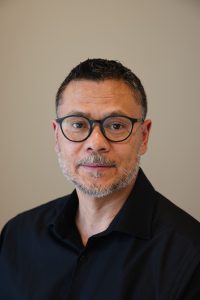 I am a Registered Psychologist (#1361) in the province of British Columbia and have been in private practice since receiving my Ph.D. in 1998. I see individuals and couples out of my Langley office @ #304C – 19978 72nd Ave. (in the Jeske Corporate Centre).
I am a Registered Psychologist (#1361) in the province of British Columbia and have been in private practice since receiving my Ph.D. in 1998. I see individuals and couples out of my Langley office @ #304C – 19978 72nd Ave. (in the Jeske Corporate Centre).
Currently, I am also an Associate Director at the SFU Clinical Psychology Centre, which provides clinical training for Masters and Ph.D. students studying to become Registered Psychologists.
Between 2014 and 2016 I provided group therapy services at Surrey Mental Health (one of the busiest group therapy programs in BC), where I supervised the psychiatry residents and psychology practicum and internship students and facilitated clinical rounds.
Between 1998 and 2010 I served as the Clinical Services Consultant to Peace Arch Community Services (PACS) – now named SOURCES – in White Rock (also since 1998). PACS is a non-profit community service organization which operates a number of programs within the White Rock/South Surrey area.
I provided clinical supervision and consultation to the PACS outpatient fee-for-service counselling team, the government-funded Addictions program and to two child and adolescent residential treatment facilities working with families that are at-risk and have been referred by the Ministry of Children and Families. I supervised Master’s level counselling students completing their practicum at PACS.
Between 2007 and 2017 I provided psychotherapeutic treatment groups to offenders throughout British Columbia as a contractor for the provincial government’s Forensic Psychiatric Services Commission.
Prior to 1998 I was a Psychologist with the Correctional Service of Canada for approximately 2.5 years. During this time, I provided individual therapy, crisis intervention, risk and intake assessment & critical incident stress debriefing primarily at Kent Maximum Security Institution.
Previous work experiences also include; (i) working with drug and alcohol issues with incarcerated youth; (ii) working as a part-time school counsellor (2 years) in both a high school and elementary school (provided individual and group counselling to students, family therapy and liaison work with the families and outside professional agencies); and (iii) on-call crisis intervention and management with an employee assistance program.
Educational Overview
I completed my B.A. (1st Class Honours) in Psychology at Simon Fraser University and my M.A. and Ph.D. at Rosemead School of Psychology – Biola University in Southern California. Further training experiences during my clinical internship at the University of Manitoba (1 year full-time) and practicums in Southern California (2.5 years part-time) include, in-part: (i) an Anxiety Disorders Clinic – conducting cognitive behavioural therapy with adult clients experiencing a variety of anxiety disorders; (ii) a Health Psychology and an Oncology rotation – with a focus on the assessment and treatment of pain and the implementation of health psychology interventions for those with cancer; (iii) specific training working with clients in a rural setting (the Interlake region north of Winnipeg); (iv) an Adult Psychiatric Inpatient (hospital) Unit – conducting both inpatient and outpatient psychological assessments; (v) a 16 month outpatient practicum at the Hospice of Pasadena (California) providing individual and family grief therapy and bereavement groups (supervised by William J. Worden, Ph.D., an internationally recognized and foremost authority on the treatment of grieving related issues); (vi) a one year marital therapy training course and clinic; (vii) an adolescent inpatient unit providing assessments, individual therapy and group therapy; (viii) providing intelligence and achievement testing, individual and group therapy within a school district; and, (ix) supervised experience of long-term psychodynamic therapy with adults and play therapy with children. I have intentionally tried to gain a wide range of clinical experiences in different settings over the years. I believe that these experiences have helped me to more clearly define the needs, feelings, thoughts and fears that are perhaps most common to all of us… simply because we are human. For example, we all have similar underlying needs for belonging, affection, empowerment and meaning. This approach – I believe – leads to a more balanced perspective on psychological health and to greater compassion and empathy for others.
